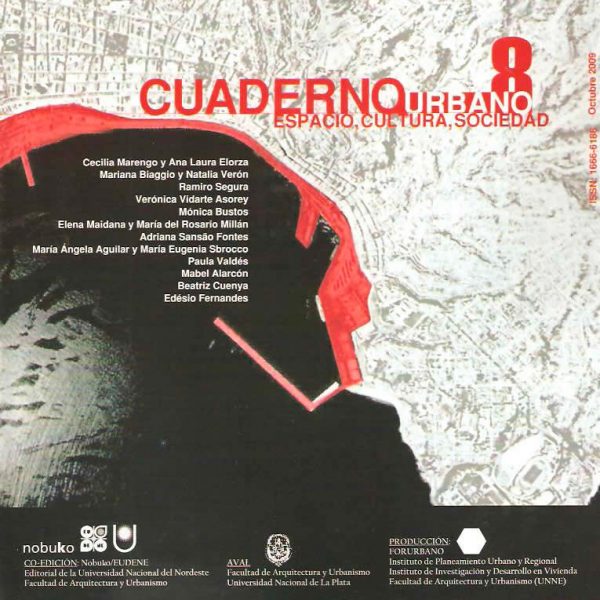Notas sobre el proceso de implementación de la agenda para la reforma urbana en Brasil
DOI:
https://doi.org/10.30972/crn.88966Keywords:
reforma urbana, planificación urbana, tenencia de la tierra, legislación urbana, inclusión socialAbstract
Este artículo describe el proceso de reforma urbana en Brasil desde la perspectiva de las innovaciones legales e institucionales en el país a partir de la promulgación de la Constitución Federal de 1988, las cuales incluyen el Estatuto de la Ciudad de 2001 y la creación del Ministerio de las Ciudades y del Consejo Nacional de las Ciudades en 2003. El artículo analiza los avances hasta la fecha y las cuestiones pendientes en materia de reforma urbana. En este marco, nota la necesidad de una combinación de reforma jurídica, cambio institucional movilización social renovada en todos los niveles para aprovechar los nuevos espacios políticos creados por el proceso de reforma urbana y así revertir la exclusión socioespacial que ha caracterizado el desarrollo urbano en Brasil durante las últimas décadas.
Downloads
References
(1) Fernandes, Edésio (1992a). Law, politics and environmental protection in Brazil. Journal of Environmental Law, vol. 4, N.º 1.
(2) Fernandes, Edésio (1992b). Juridical-institutional aspects of metropolitan administration in Brazil. Third World Planning Review, vol. 14, N.º 3.
(3) Fernandes, Edésio (1993). The legal regularization of favelas in Brazil. The case of Belo Horizonte. Social and Legal Studies, vol. 2.
(4) Fernandes, Edésio (1994). Defending collective interests in Brazilian environmental law: an assessment of the civil public action. Review of European Community and International Environmental Law, vol. 3, N.º 4.
(5) Fernandes, Edésio (1995a). Curitiba, Brazil: successfully integrating land use and transport policies. International Report, vol. 5.
(6) Fernandes, Edésio (1995b). Collective interests in Brazilian environmental law. In: D. Robinson and J. Dunkley (editors), Public Interest Perspectives in Environmental Law, Wiley Chancery Law, Chichester.
(7) Fernandes, Edésio (1995c). Law and Urban Change in Brazil, Avebury, Aldershot.
(8) Fernandes, Edésio (1995d). Participatory budget: a new experience of democratic administration in Belo Horizonte, Brazil. International Report Issue 11.
(9) Fernandes, Edésio (1996). Constitutional environmental rights in Brazil. In: M. R. Anderson and A. E. Boyle (editors), Human Rights Approaches to Environmental Protection, Oxford University Press, Oxford.(2000). The legal regularization of favelas in Brazil: problems and prospects, Third World Planning Review, vol. 22, Nº 2.
(10) Fernandes, Edésio (2002a). Providing security of tenure for the urban poor: the Brazilian experience. In: Alain Durand-Lasserve and Lauren Royston (editors), Holding their Ground – Secure Land Tenure for the Urban Poor in Developing Countries, Earthscan, London.
(11) Fernandes, Edésio (2002b). Combining tenure policies, urban planning and city management in Brazil. In: Geoffrey Payne (editor), Land, Rights and Innovation – Improving Tenure Security for the Urban Poor, ITDG, London.
(12) Fernandes, Edésio (2003). Del Código CiviI al Estatuto de la Ciudad: algunas notas sobre la trayectoria del Derecho Urbanístico en Brasil. Eure, vol. 29.
(13) Fernandes, Edésio (2006). Principles, bases and challenges of the national programme to support sustainable urban land regularization in Brazil. In: Marie Huchzermeyer and Aly Karam (editors), Informal Settlements – A Perpetual Challenge? University of Cape Town Press, Cape Town.
(14) Fernandes, Edésio & Rolnik, Raquel (1998). Law and urban change in Brazil. In: Edésio Fernandes and Ann Varley (editors), Illegal Cities – Law and Urban Change in Developing Countries, Zed Books, London.
(15) Fernandes, Edésio & Valença Márcio (editors) (2001). Urban Brazil: past and future. Geoforum, vol. 32, N.º 4, Special Issue, Elsevier, London.
(16) Kowarick, Lucio (editor) (1994). Social Struggles and the City. The Case of São Paulo. Monthly Review Press, New York.
(17) Souza, Celina (2001). Participatory budgeting in Brazilian cities: limits and possibilities in building democratic institutions. Environment & Urbanization, vol. 13, N.º 1.
(18) De Souza, Marcelo Lopes (2001). The Brazilian way of conquering the ‘right to the city’: successes and obstacles in the long stride towards an ‘urban reform’. DISP, vol. 147.
Downloads
Published
Issue
Section
License
CUADERNO URBANO sustains its commitment to the Open Access policies for scientific information, on account of the fact that both scientific publications and public funded research must circulate freely on the Internet and without restrictions.
CUADERNO URBANO ratifies the Open Access model in which the contents of scientific publications are available in full text free of charge on the Internet, without temporary embargoes, and whose editorial production costs are not transferred to the authors. This policy proposes breaking down the economic barriers that generate inequities both in access to information and in the publication of research results.





.jpg)








